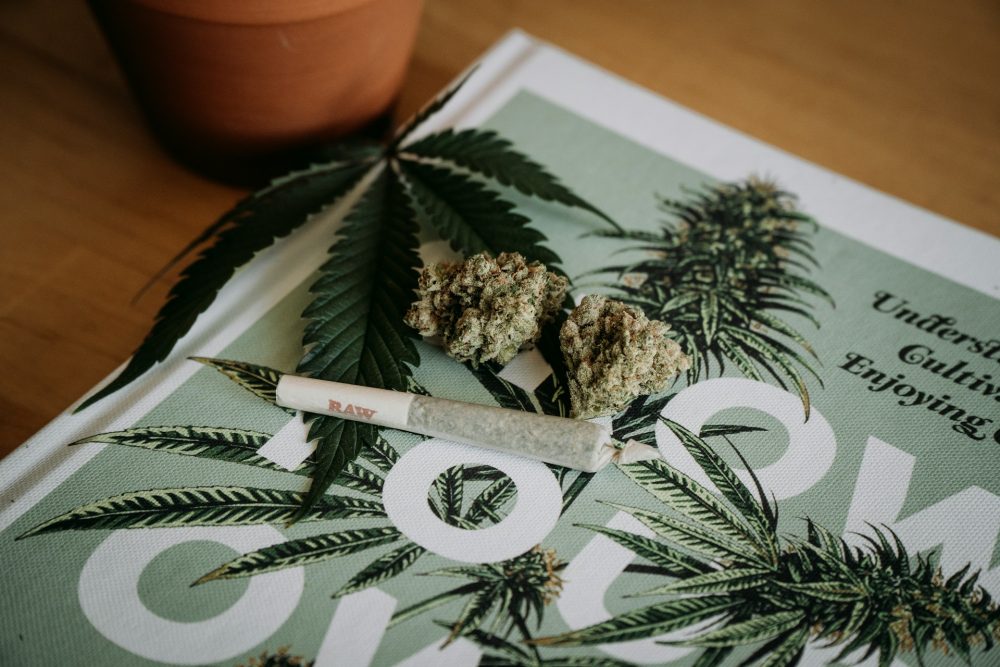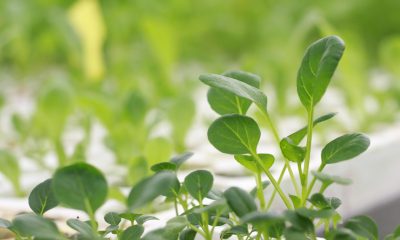Africa
Seeds for Sustainable Energy: Startups Awarded by Eni in Kenya
According to the latest report from the Kenya National Bureau of Statistics national government agency, the country gets 21.2 percent of its gross domestic product just from agriculture. This is a very high percentage, albeit down 1.6 percent from the previous year due to the drought, which has plagued many areas reducing the production of cultivated areas.

The final awards ceremony at the end of the “Seeds for sustainable energy” bootcamp, held in Nairobi May 2nd-5th, was the final stage of a much longer journey that began months ago. The initiative, launched by Joule, Eni’s school for enterprise, together with the Bologna-based nonprofit BeEntrepreneurs, closed registration on February 28th. At that point, the process of selecting the ten best early-stage startups in East Africa from more than 200 applicants began.
Of these companies, three were awarded final prizes at the training program held at the E4Impact Entrepreneurship Center in Nairobi. The prizes consist of services worth 10 thousand euros for each startup, dedicated to the development and growth of entrepreneurial projects. The event was also attended by three international startups, chosen from more than 300 analyzed, who together with representatives of Eni in Kenya and Italian institutions in the country examined the innovative scope of the solutions proposed by local companies.
Read more on the subject and find the latest economic news of the day with the Born2Invest mobile app.
The importance of agriculture in Kenya and the reason for Joule’s initiative
The “Seeds for sustainable energy” initiative followed some specific guidelines, focusing on a market analysis of innovations in agriculture, the search for technological solutions that can make a significant contribution to the sector, promoting sustainability throughout the supply chain, and the strengthening of the local innovation ecosystem, with the involvement of local stakeholders.
The reason for such a focus on the sector in Kenya is explained by the numbers regarding Kenya’s economy. According to the latest report from the Kenya National Bureau of Statistics national government agency, the country gets 21.2 percent of its gross domestic product just from agriculture. This is a very high percentage, albeit down 1.6 percent from the previous year due to the drought, which has plagued many areas reducing the production of cultivated areas. Not surprisingly, 80 percent of the land is affected by degradation and desertification.
In Kenya, where 40 percent of the total population is employed in agriculture, the Italian company has activated a project since 2021 that involves about 40,000 local farmers to date. The partnership is aimed at growing agri-feedstock on semi-arid, degraded, or abandoned land. These are agricultural raw materials, not in competition with the food chain, from which vegetable oils can be produced. The vegetable oil is produced at the plant that Eni opened in 2022 in the south of the country, more specifically in Makueni County, with a capacity of 15 thousand tons per year. The extracted oil is then sent to Eni’s biorefinery in Gela to produce biofuels.
Similar initiatives have also been launched in Congo, Angola, Mozambique, Rwanda, and the Ivory Coast. The aim is thus to include African countries in the biorefining supply chain, to which local startups and innovative projects can contribute ideas and new solutions, following the logic of open innovation. The “Seeds for sustainable energy” program is an example of this: winning companies can offer tools in both the agricultural and sustainable waste disposal branches.
Who the award-winning startups are and what they do
The first of the three companies to be awarded the 10 thousand euro grant is called FamerLifeLine Technologies and has developed a system for monitoring the state of crops. Its technology makes it possible to speed up the detection of pests and diseases in plants.
“Our startup offers small farmers the ability to curb the appearance of pests and from crop diseases,” explains Esther Kimani, the company’s founder. To do this, she specifies, “we install a device on the estates that can capture images of the crops and, the moment it detects the presence of a pest or disease, immediately alert the farmer via text message. I did not expect to reach the first position, it was a busy day and there were many other really good ideas,” he continues. “This achievement is an encouragement to the whole team and shows that there are people who can recognize that what we are doing has a real impact.”
Considering that “95 percent of the food we eat is produced by smallholders,” FamerLifeLine’s next goal, Kimani points out, is expansion into East Africa and across the continent. Looking ahead to the next steps, the bootcamp experience proved important. “We have been thinking about what our company can look like 10 years from now, to figure out what aspects to focus on now to make a mark in the future,” he said.
FarmIt is also active in the same sector, second classified in Joule’s “Seeds for sustainable energy” program. In particular, the startup founded by Allan C’oredo offers digital solutions to improve the livelihoods of farmers. Thanks to a team of experts, agronomists, entrepreneurs specialized in the sector, and developers, FarmIt allows users to receive useful advice to use precision agriculture and optimize their presence on the market, allowing them to increase revenue and absorb in a better way shocks due to climate change.
“I have worked as an agronomist for the last eight years and, speaking with several small farmers, I have seen what challenges they are facing”, says C’oredo. “I have chosen to commit myself to try to reduce the poverty that afflicts them and reduce the percentage of people who suffer from hunger”. Hence the decision to found FarmIt, which uses “satellite images, artificial intelligence and machine learning to obtain fundamental information: from the level of nutrients and water in the soil, to diseases and pest infestations, as well as offering a forecasting service meteorological conditions, up to two weeks’.
To date, the startup has nearly 6,800 registered farmers and about 450 major customers, including schools, hotels and shops, and operates in five counties in Kenya. Thanks to FarmIt, we read on the site, registered users have increased margins tenfold and reduced post-harvest losses. “We plan to improve capabilities and streamline operations on our platform to accommodate more users,” the founder points out. “Right now, we are focused on offering personal advice and cutting production costs. We want to encourage small farmers to adopt technological tools in their business».
The bootcamp, concludes C’oredo, “helped me redefine the goals of the startup and the applications that artificial intelligence can have in our society”. An aspect also considered central by Emmanuel Muchule, founder of Koch Food Waste Management Champions – third classified in “Seeds for sustainable energy”. “They have been useful days to understand how to focus on one’s purpose, without straying from it, and learn to control business risks,” says Muchule.
His company is able to collect and transform waste into products such as compost, fertiliser, briquettes and oil. «We manage food waste and through the use of technologies, we are able to create a series of eco-sustainable and useful products. In the next two years, the startup aims to grow, targeting schools, institutions and hotels in its country”. As well as the podium, a path to be told.
__
(Featured image by ninastock via Pixabay)
DISCLAIMER: This article was written by a third party contributor and does not reflect the opinion of Born2Invest, its management, staff or its associates. Please review our disclaimer for more information.
This article may include forward-looking statements. These forward-looking statements generally are identified by the words “believe,” “project,” “estimate,” “become,” “plan,” “will,” and similar expressions. These forward-looking statements involve known and unknown risks as well as uncertainties, including those discussed in the following cautionary statements and elsewhere in this article and on this site. Although the Company may believe that its expectations are based on reasonable assumptions, the actual results that the Company may achieve may differ materially from any forward-looking statements, which reflect the opinions of the management of the Company only as of the date hereof. Additionally, please make sure to read these important disclosures.
First published in StartupItalia, a third-party contributor translated and adapted the article from the original. In case of discrepancy, the original will prevail.
Although we made reasonable efforts to provide accurate translations, some parts may be incorrect. Born2Invest assumes no responsibility for errors, omissions or ambiguities in the translations provided on this website. Any person or entity relying on translated content does so at their own risk. Born2Invest is not responsible for losses caused by such reliance on the accuracy or reliability of translated information. If you wish to report an error or inaccuracy in the translation, we encourage you to contact us.

-

 Fintech5 days ago
Fintech5 days agoFirst Regulated Blockchain Stock Trade Launches in the United States
-

 Africa2 weeks ago
Africa2 weeks agoAir Algérie Expands African Partnerships
-

 Cannabis21 hours ago
Cannabis21 hours agoAurora’s Electric Honeydew Debuts in Poland, But Shared Registry Raises Patient Caution
-

 Markets1 week ago
Markets1 week agoRising U.S. Debt and Growing Financial Risks
























